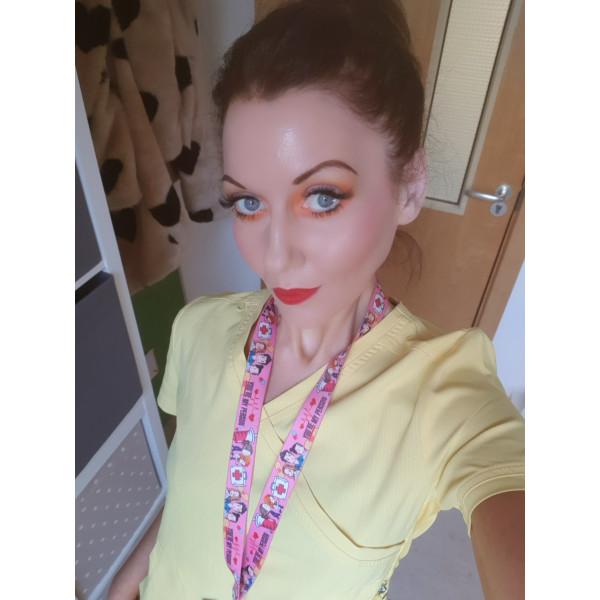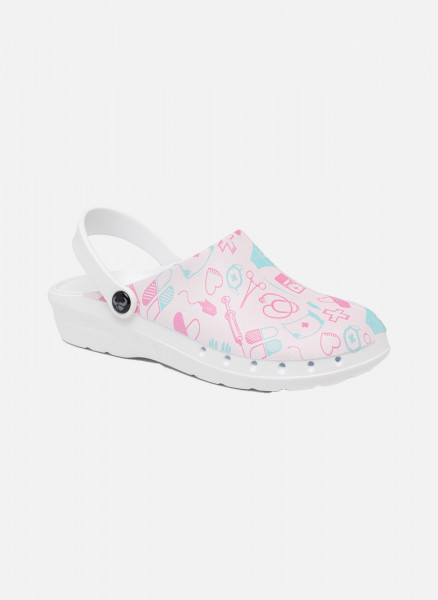I work as a senior emergency medicine registrar in an often overwhelmingly busy department, in a large Dublin hospital. Our patient cohort is one of the most elderly in the country, with numbers of nursing home residents amongst the highest per capita of population in Ireland. My special interest in emergency medicine is Care of the Elderly, so although the advanced age and corresponding complex care needs of our attendees to the ED pose many clinical challenges, these patients are also those that I find most fulfilling to help.
Truthfully, if I could surround myself solely with people in their 80s and 90s, I think I'd be an eternally happy woman. So often, we see our older generation infantilized in the media or in public discourse; every day I might meet 20 different people born in the 1920s/30s/40s, and every day, they confound me with their depth, compassionate outlook, kindness and gratitude. Perhaps one of the greatest mistakes we can make as a society collectively, is to underestimate those who are older than us, to forget the fascinating and full lives they have led and all that they can teach us.
Even in an often chaotic environment like a bustling and dynamic ED, I find that personal moments with my older patients make me smile and serve to put my small stressors into welcome perspective.
I think of the nonagenerian nun I met. Having given her life to the Catholic Church, her main interest seemed to be trying to hook me up with any handsome men flitting about. "Let's find you the man you deserve", says she, "that's all I want to talk about today." I remember the man in his 80s from the West of Ireland, temporarily adrift and presumed confused in the ED until I realised that he was a Gaelgoir. As his cognition declined in his advanced years, he could only speak his native Irish. How happy he was to be addressed as Gaeilge! And how happy it made me to be able to help.
Obviously emergency departments are incredibly stressful environments for any patient or relative, but that stress, anxiety and disorientation is magnified manifold when a patient is older, very used to routine and familiar settings and may be suffering from dementia or another form of cognitive impairment. Probably the greatest source of distress for me personally is how overcrowding and lack of inpatient beds in any hospital impacts our more vulnerable older generation. Our emergency departments turn into wards; dozens of admitted patients occupy every inch of floor space and the lack of privacy, the constant noise, the bright, artificial lighting, the frequently changing guard of staff, the absence of personal caregivers and limited visitors, can be deeply upsetting for anyone. We work hard to minimise these stressors and have a skilled multidisciplinary team dedicated to focusing on just this, but it still gives me pause daily; I know I'm doing my best for patients by treating their acute conditions but it's tough to reckon with the personal upheaval that this leads to.
I do hope that people know, both the patients and families themselves, and the general public who are subject to headline after headline detailing the challenges faced in our public hospitals daily, that as caregivers we are also terribly affected by the conditions we work in every day. There are great days in every ED, when waiting times are low, admitted patients receive beds on the ward quickly and staffing is at an optimum, but these days don't negate the harder ones. They're heartbreaking for us too.
One of the small ways I can help, aside from emergency care, is wearing bright scrubs in the emergency department, as I find they make it much easier for patients to identify me. Usually any ED is swarming with doctors, nurses, HCAs, often in identical or similar coloured scrubs. My pink or yellow or purple scrubs earmark me for any patient, not just the older ones, and they know who's responsible for taking care of them. There's a lot of evidence to show that warm, bright colours are beneficial for patients who are cognitively impaired, and anecdotally I love seeing that smile of recognition when a patient, who may have difficulty tracking everything around them that day in a strange environment, sees me and remembers me from earlier.
I find that, by necessity perhaps, in medicine, we focus on our big wins and tragic losses, the most dramatic patient cases. But for me, what keeps me going at work are the small victories and authentic, intimate interactions, and I find that my older patients provide me with a wealth of warmth and affection; I sometimes believe I get more from seeing and speaking to and treating them than they get from me!
As a doctor, I think that how you make your most vulnerable patients feel is maybe one of the most important barometers for who you are as a clinician, and developing the patience and gentleness that older people in this country need and deserve is a great place to build and foster that essential empathy.
Related Links:
Interview With Nursing Mama Founder Katie Mugan
Adding Embroidery To Your Work Uniform
6 Super Powers Every Midwife Has
The reality of Christmas in a psychiatric unit by a psychiatric nurse


